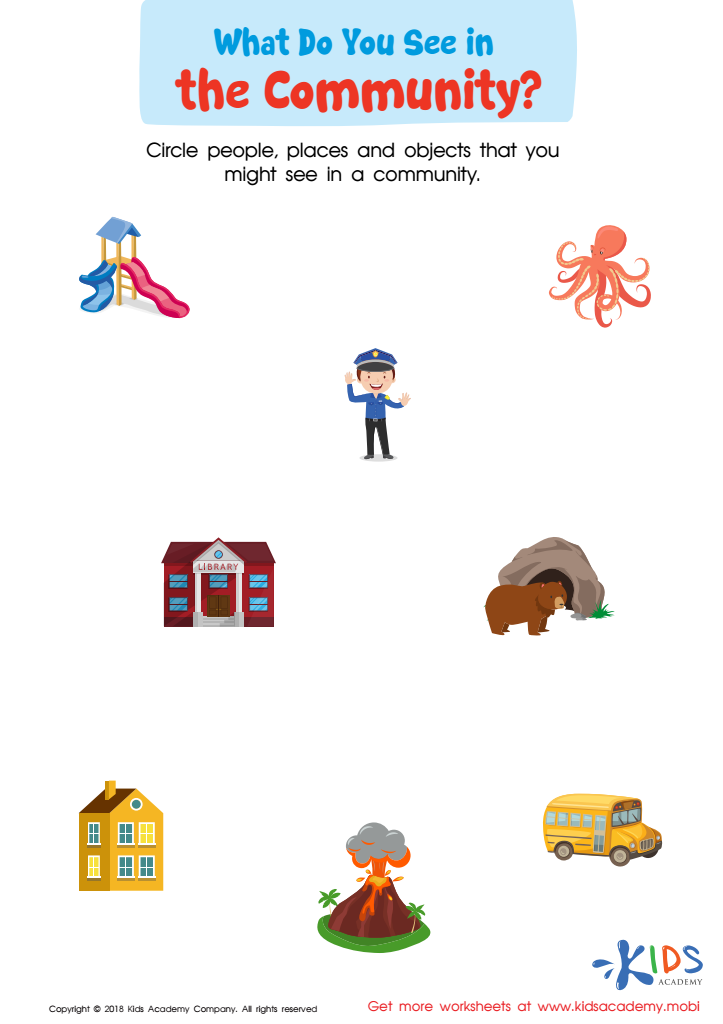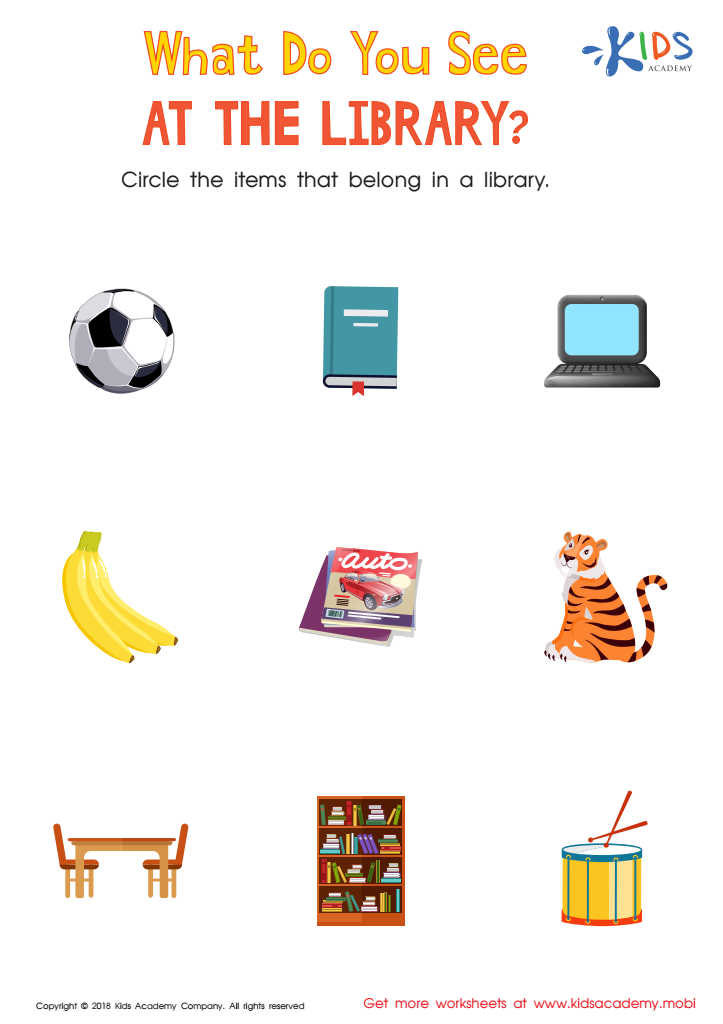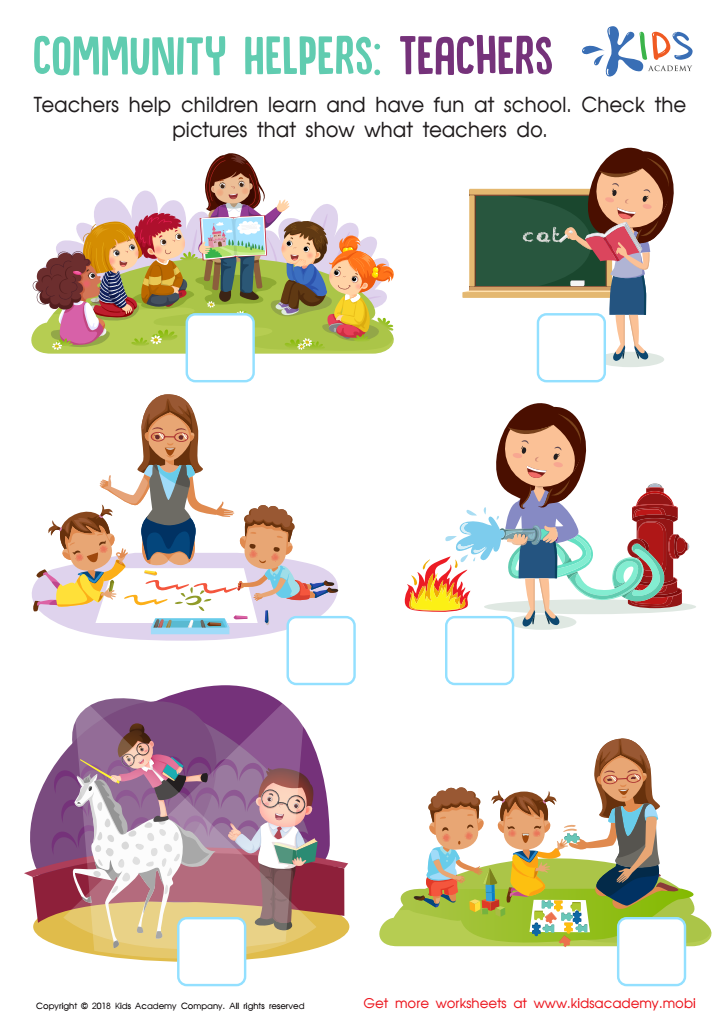Vocabulary Building Normal Community Worksheets for Ages 4-5
3 filtered results
-
From - To
Introducing our "Vocabulary Building Normal Community Worksheets for Ages 4-5," designed to enrich your child's vocabulary through fun, engaging activities. Perfect for preschoolers, these worksheets focus on words related to everyday community environments, helping children to recognize and understand terms they encounter daily. Each worksheet features colorful illustrations, matching games, and simple, age-appropriate exercises to make learning exciting and effective. Ideal for both classroom and home use, these resources aim to strengthen language skills, boost confidence, and foster a love of learning in our young explorers. Transform vocabulary building into an enjoyable adventure today!


What Do You See in the Community Worksheet


What Do you See at the Library? Worksheet


Teachers Community Helpers Worksheet
Vocabulary building in young children, particularly those aged 4-5, is a vital aspect of early childhood development that greatly influences their future academic and social success. During these formative years, children are in a prime stage for language acquisition due to their brain's rapid development and high plasticity. A rich vocabulary serves as a foundation for reading skills, comprehension, and overall cognitive development.
For parents and teachers, focusing on vocabulary building creates a stimulating environment that encourages curiosity and learning. As children's vocabulary expands, they are better able to express their thoughts, needs, and emotions, which enhances their communication skills and social interactions. This not only aids in forming relationships with peers but also contributes to emotional regulation and self-confidence.
A strong vocabulary is also linked to academic achievement. Children with a broad word bank are more equipped to grasp new concepts, follow instructions, and engage with educational content across various subjects. By investing time in vocabulary-building activities—such as reading aloud, engaging in conversations, and playing word games—parents and teachers can provide children with tools that pave the way for a lifetime of learning and success.
Fostering a normal community where vocabulary development is prioritized ensures that children receive consistent and reinforced learning experiences both at home and in school, creating a cohesive support system that underpins their linguistic and intellectual growth.
 Assign to My Students
Assign to My Students















